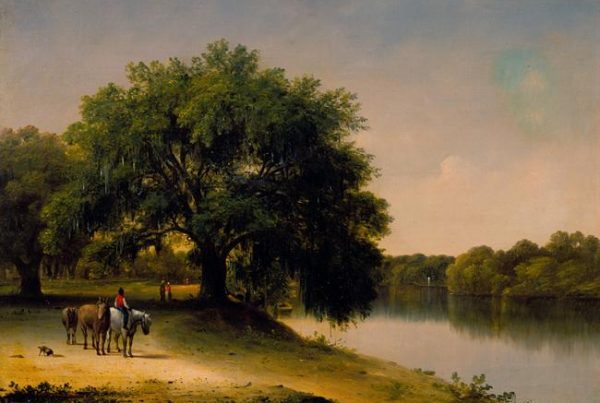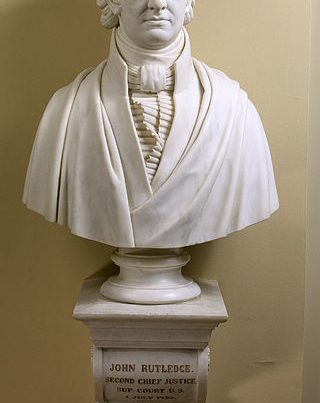Robert Barnwell Rhett, born on December 21, 1800, is remembered as one of the foremost “fire-eaters” of the South in the years leading to the War in 1861. He championed nullification between 1830 and 1859 in order to preserve the Union, but had decided after the election of 1860 that the Union of the Founders had been dissolved and replaced with a consolidated government dominated by the North. Rhett battled Jefferson Davis during the War and considered his vote for Davis as President of the Confederate States one of the worst decisions of his life. He was a bombastic self-promoter but true to his belief in limited government and State’s Rights, even when that position contradicted the general aims of the Confederate war effort. His postbellum memoir, available in an edited version by the historian William C. Davis, is saturated with myopic assessments of Southern history that confirm his central role in every major event of the period. Regardless, Rhett made great speeches, had a sharp wit, owned one of the most influential papers in the South–the Charleston Mercury–and had a shrewd understanding of political power and the inherent weaknesses of the Constitution. Those that loathe both Rhett and the South, including William C. Davis, call him a crackpot or worse, and Rhett’s clear political philosophy is often overlooked because of his rigid defense of slavery. The two can be divorced. Rhett even listed the six most important differences between the United States and Confederate States Constitutions; slavery was not one of them. Below is an extract of a speech he gave in South Carolina following the Democratic Convention of 1860. Rhett was more prescient than even he believed, and his evaluation of “minority” interests and the nature of “true conservatism” should give the modern reader pause.
Do not all constitutions imply that men will be faithless in their duty towards others? What are they made for, but to restrain the strong, because the strong will be unscrupulous? Undoubtedly it is wrong for men to aggress upon their follow men; but this is the nature–the fallen nature of man; and constitutions are made to counteract this inevitable tendency of our nature; and by clearly defined rights and distinct limitations, to give the weak, the moral power, in foro conscienteae, of protecting themselves. No constitution can enforce itself. Its grants of power, will always be enforced by the majority; but its limitations on power, must be enforced by the minority, for whose benefit they are created. But how can a minority enforce a constitution? In but one way–by reason, backed by a stern spirit of resistance. Since the foundation of free governments, no constitution has been ever preserved by the mere faith of those who have had power over it; and it has been preserved only by the resistance of those who are mainly interested in its limitations. Men–not inanimate parchments–living men, not dead abstractions–have enforced free governments.
When the Constitution of the United States was established, with all of its carefully defined powers, did not all anticipate the strife which has taken place between the great sections composing the Union? And was any man so silly as to suppose, that a course of uniform and abject submission, would protect the weaker, from aggressions by the stronger section of the Union? The men who made the Constitution were not fanatstical philosophers, but soldiers and statesmen, who, by practical resistance, had wrested their liberties from the bloody grasp of Great Britain; and when they transmitted them to us, they placed upon us the obligation to preserve them. They were bound up, in the Union of the Constitution. To overthrow this Union, is revolution–disunion. He is the true conservatist, the faithful supporter of the Union, who will not consent that the Union of the Constitution shall be set aside, and another Union, under the control of mere arbitrary power, shall be established in its stead….South Carolina has waited for the other Southern States to join her in a duty imposed upon them, but not less upon herself–until the exasperation of the sections towards each other, and a settled consolidations of the Government, renders the restoration of the Union of the Constitution, to all appearance, hopeless. It could have been saved by a timely interposition of the power of the States; and if it is finally now overthrown, history will record that it fell by the faithlessness of the North in unconstitutional aggressions, and by the faithlessness of the South in failing to resist them. Resistance, was true conservatism. The most irrevocable and desperate of all revolutions, is that which takes place under a passive, resistless succumbency.






